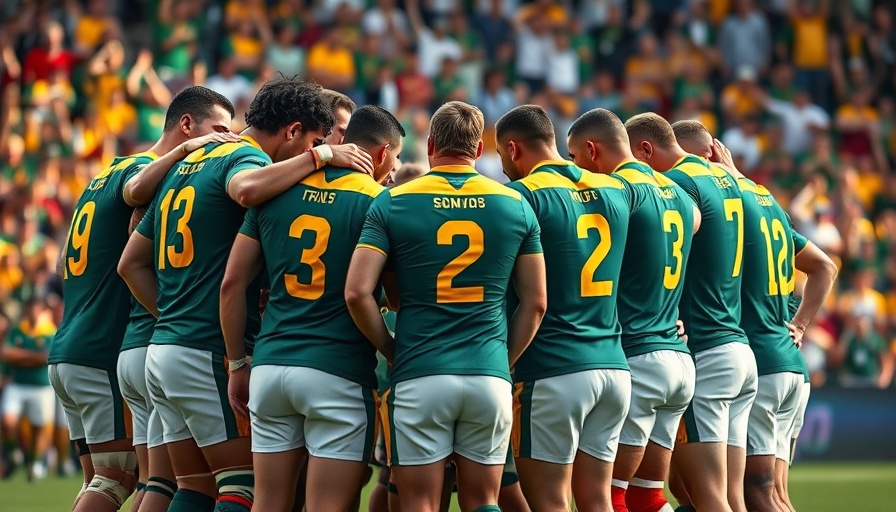
A Disappointing Finish for the Blitzboks in Hong Kong
The Blitzboks, South Africa’s renowned rugby sevens team, concluded their Hong Kong Sevens journey with a disheartening ninth-place finish. This is particularly striking as it marks the first instance this season where they have failed to make it to the Cup quarterfinals. Despite this setback, the team managed a narrow victory against Kenya, securing a 19-17 win in the playoff, which offered a glimmer of consolation amidst a largely unremarkable tournament.
Broader Implications of the Blitzboks’ Performance
While the performance in Hong Kong highlights some immediate challenges for the Blitzboks, it also reflects larger trends within South African sports and national pride. Rugby is not just a game in South Africa; it is a crucial part of national identity, intertwining with the country’s historical narrative of overcoming adversity.
The current performance has implications not just for the sports community but also for public sentiment amidst pressing national issues. As political tensions rise due to corruption investigations and state capture, the spirit of national sports often plays a role in unifying a country. Yet, the Blitzboks’ failure to replicate their previous successes could serve as a microcosm of broader struggles faced within South Africa's societal framework, from economic recovery to racial equality.
The Road Ahead: Emphasizing Focus and Resilience
Looking ahead, the Blitzboks will need to regroup quickly as they prepare for the upcoming Singapore Sevens. The Singapore tournament presents an opportunity for revitalization and a chance to restore faith among fans and supporters. The rigorous demands of the series call for strategic planning and a focused approach towards honing skills and bolstering team morale.
In maintaining a fourth-place standing overall, the Blitzboks remain contenders; however, their standings are increasingly precarious as powerful rivals like Argentina and Fiji gain momentum with their Cup semifinal appearances. How the Blitzboks address their weaknesses could influence not only their trajectory in the series but also public morale as fans rally behind the team during challenging times.
Connecting Rugby and Social Issues: The Public’s Role
The broader social context surrounding rugby in South Africa cannot be overlooked. As issues like youth unemployment, education reforms, and social grants dominate the political landscape, sporting events provide an essential outlet for public engagement. They foster conversations about national pride while reflecting on the realities citizens face. In the wake of sporting disappointments, fans often call for accountability and reform, urging players and management alike to rise to the occasion, reminiscent of the demands seen in activism surrounding student protests and service delivery issues.
Sports as a Reflection of Social Change
The links between the outcome of the Blitzboks' performances and broader societal challenges like corruption and economic disparity are reflective of South Africa’s complex landscape. The underperformance of the team may spark discussions around the need for more robust investment in sports development, mirroring the educational and economic reforms many call for as paths toward recovery.
After the Hong Kong Sevens, a crucial question looms: how can the team translate their athletic challenges into lessons for broader societal application? Public expectations are high, and along with sports performance, there exists an increasing demand for accountability from the athletes and governing bodies to champion change that resonates beyond the rugby field.
Conclusion: Rallying Behind the Blitzboks
The Blitzboks' journey through the Hong Kong Sevens exemplifies the challenges intertwined with national identity and unity. As they move towards Singapore, it is essential for fans, stakeholders, and policy makers to harness the potential of sport as a means of reflecting and addressing the socio-political currents at play. The call to action is clear: whether it’s supporting our national athletes or advocating for systemic reform in the broader socio-economic landscape, the time to engage is now.
Let’s rally behind the Blitzboks as they embark on this pivotal journey, remembering that the bond between sports and society is profound and transformative.
 Add Row
Add Row  Add
Add 




Write A Comment